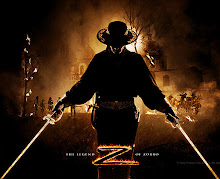by: Jesse J. Holland, Associated Press
WASHINGTON (AP) – The Supreme Court on Monday refused to let California regulate the sale or rental of violent video games to children, saying governments do not have the power to "restrict the ideas to which children may be exposed" despite complaints about graphic violence.
Mortal Kombat Warner Bros. Interactive On a 7-2 vote, the high court upheld a federal appeals court decision to throw out the state's ban on the sale or rental of violent video games to minors. The 9th U.S. Circuit Court of Appeals in Sacramento had ruled that the law violated minors' rights under the First Amendment, and the high court agreed.
"No doubt a state possesses legitimate power to protect children from harm," said Justice Antonin Scalia, who wrote the majority opinion. "But that does not include a free-floating power to restrict the ideas to which children may be exposed."
Monday, June 27, 2011
Sunday, June 12, 2011
How Apple and Android Copy Each Other
Jared Spurbeck -
The iPad may be a "magical, revolutionary product." But sometimes it seems like there's nothing new under the sun, whether in the Android or Apple worlds. Here are some of the most egregious examples of copycatting!
Android
Android device manufacturers like Samsung have long copied Apple's style, almost to a T. Witness the photos and illustrations on All Things Digital, which show Samsung devices that look nearly identical to Apple's except for the logo. Meanwhile, the company's new Galaxy Tab tablets are basically generic-brand iPads, with the biggest difference (besides their Android operating system) being that they come in three different sizes.
Of course, all Android tablet makers struggle to differentiate their wares from the iPad, since they all can be described as "like an iPad, but". Even in the smartphone world, even with Android's increasing market share, the iPhone is still the benchmark. That's no accident; Android itself has always been a copycat. Before the iPhone came out, the prototype Android device aped the BlackBerry, but now they all have multitouch screens and rows of app icons.
Does Android have to be this way? I don't think so. HTC uses its HTC Sense overlay to create an extremely classy experience on its Android phones, one that's in many ways improved over the original. Meanwhile, Barnes and Noble redesigned Android's interface from the ground up for its Nook series of tablets, not just to be "original" but in order to make using a Nook easy and fun. So far, its strategy seems to be paying off. to read more of this article click the link above
The iPad may be a "magical, revolutionary product." But sometimes it seems like there's nothing new under the sun, whether in the Android or Apple worlds. Here are some of the most egregious examples of copycatting!
Android
Android device manufacturers like Samsung have long copied Apple's style, almost to a T. Witness the photos and illustrations on All Things Digital, which show Samsung devices that look nearly identical to Apple's except for the logo. Meanwhile, the company's new Galaxy Tab tablets are basically generic-brand iPads, with the biggest difference (besides their Android operating system) being that they come in three different sizes.
Of course, all Android tablet makers struggle to differentiate their wares from the iPad, since they all can be described as "like an iPad, but". Even in the smartphone world, even with Android's increasing market share, the iPhone is still the benchmark. That's no accident; Android itself has always been a copycat. Before the iPhone came out, the prototype Android device aped the BlackBerry, but now they all have multitouch screens and rows of app icons.
Does Android have to be this way? I don't think so. HTC uses its HTC Sense overlay to create an extremely classy experience on its Android phones, one that's in many ways improved over the original. Meanwhile, Barnes and Noble redesigned Android's interface from the ground up for its Nook series of tablets, not just to be "original" but in order to make using a Nook easy and fun. So far, its strategy seems to be paying off. to read more of this article click the link above
Subscribe to:
Posts (Atom)



